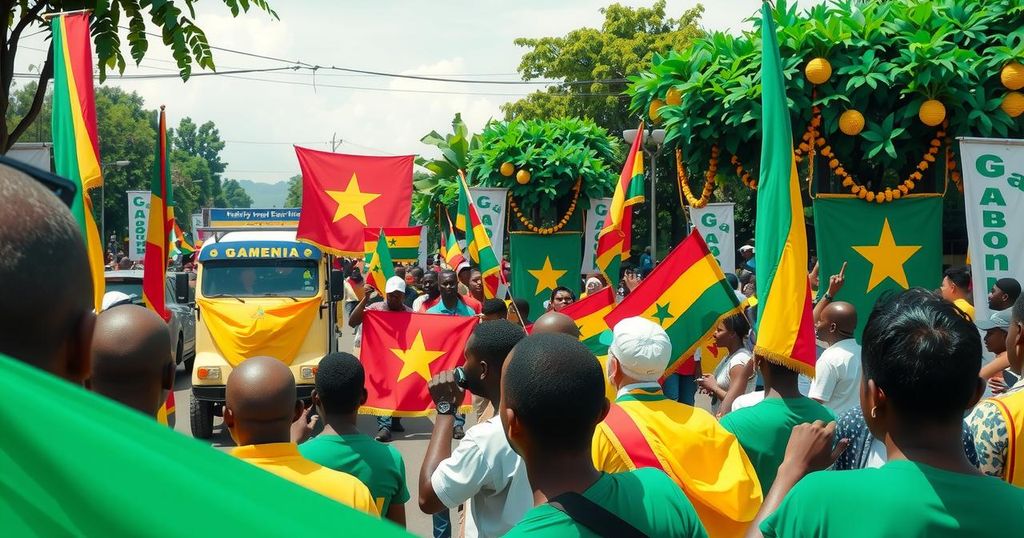Gabon Elections: Nguema’s Democratic Embrace After the Coup

Brice Clotaire Oligui Nguema is poised to lead Gabon following a peaceful coup that ended Bongo family rule. With his campaign slogan “C’BON,” he enjoys significant support and may avoid a runoff. Nguema’s leadership is anticipated to drive reforms and improve socio-economic conditions, although he faces substantial challenges in balancing development with national expectations.
In Gabon, the impending elections reflect a significant political shift, as the coup leader Brice Clotaire Oligui Nguema prepares to further embrace democratic processes. Following a peaceful coup that ended over five decades of Bongo family rule, Gabonese citizens are set to vote for a new head of state. Unlike other African military governments, Nguema is poised to support democracy in a country long stricken by dynastic governance.
At 50 years old, Nguema has transitioned from a military officer to a political candidate, presenting himself as a reformist. He leads with a campaign slogan, “C’BON,” a clever twist on the French expression meaning “it is good.” Nguema’s popularity appears solid, bolstered by favorable electoral regulations and the disqualification of key opponents. Notably, his main rival is Alain-Claude Bilie-By-Nze, an ally of the previous regime.
A victory for Nguema would grant him a seven-year term to implement significant reforms in Gabon, a nation characterized by its oil production and biodiversity. Unlike many other nations in the region, Gabon has enjoyed relative political stability, which has allowed it to pursue progressive reforms in governance and economic development following the coup.
The coup on August 30, 2023, occurred shortly after claims of a fraudulent re-election for the incumbent, Ali Bongo. Distrust towards Bongo grew especially after his health issues and allegations regarding the ambitions of his family sparked public resentment. Nguema’s takeover marked a public demand for change and widespread relief from a stagnant political climate.
Since taking power, Nguema has sought to broaden his support base, integrating former opponents and civic leaders into governance. His administration has emphasized speaking positively to international partners, focusing on diplomatic relations, particularly with France. He has also initiated public works projects to address underdevelopment and has acquired foreign assets to enhance national resource management.
As Nguema prepares for the electoral process, he faces pressing challenges ahead. Although there has been a collective desire for change within Gabon, expectations for his leadership will weigh heavily as the nation seeks to develop sustainably while balancing economic demands. Advocates for social development and environmental conservation will require his attention to adequately cater to the needs of both urban and rural populations.
The upcoming elections will undoubtedly define the future of Gabon. Nguema’s leadership style and commitment to democracy will be scrutinized, particularly amid calls for substantive public service improvements in an economically affluent yet socially challenged nation. His tenure may well dictate the transition towards a more democratic and equitable governance structure in Gabon, setting a precedent for the broader region.
In summary, Brice Clotaire Oligui Nguema’s emergence as a significant political figure in Gabon marks a departure from authoritarian rule towards a promising phase of democratic engagement. His anticipated election reflects a broader public desire for reform and political accountability. However, his administration will need to navigate complex socio-economic challenges and manage the expectations of the Gabonese people. As Gabon stands on the brink of democratic evolution, Nguema’s capacity to adhere to democratic principles while addressing critical national issues will be pivotal.
Original Source: www.bbc.com







